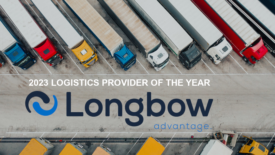Home » Keywords: » supply chain solutions
Items Tagged with 'supply chain solutions'
ARTICLES
Why data is key to complete supply chain traceability in food & beverage
The benefits of traceability for companies along the supply chain make it an essential undertaking.
January 28, 2020
How supply chain checks & balances help face a recall with confidence
Remember that food contamination can come from several sources and can arise at virtually any point in the supply chain.
January 21, 2020
NFI acquires G&P Trucking
G&P’s asset-based transportation solutions include dedicated, regional, long haul and Mexico border crossing.
December 30, 2019
Small Business in Transportation Coalition warns of supply chain disruptions
As the House of Representatives is expected to vote to impeach the President, this could very well set off a chain of events.
December 18, 2019
Is blockchain the future of food safety?
When counting the concerns of the food industry, temperature control throughout the supply chain is just the beginning.
December 17, 2019
Researchers develop TransMap to plan, build, maintain transportation infrastructure
TransMap will leverage big data to provide real-time, interactive maps and other geospatial data to help government agencies and the industry plan, build and maintain transportation infrastructure.
December 13, 2019
The power of cutting-edge logistics
Logistics companies are looking at cutting-edge technologies such as artificial intelligence, machine learning, blockchain and IoT to help stay competitive and reduce costs.
December 6, 2019
Elevate your expertise in refrigerated and frozen foods with unparalleled insights and connections.
Get the latest industry updates tailored your way.
JOIN TODAY!Copyright ©2024. All Rights Reserved BNP Media.
Design, CMS, Hosting & Web Development :: ePublishing











